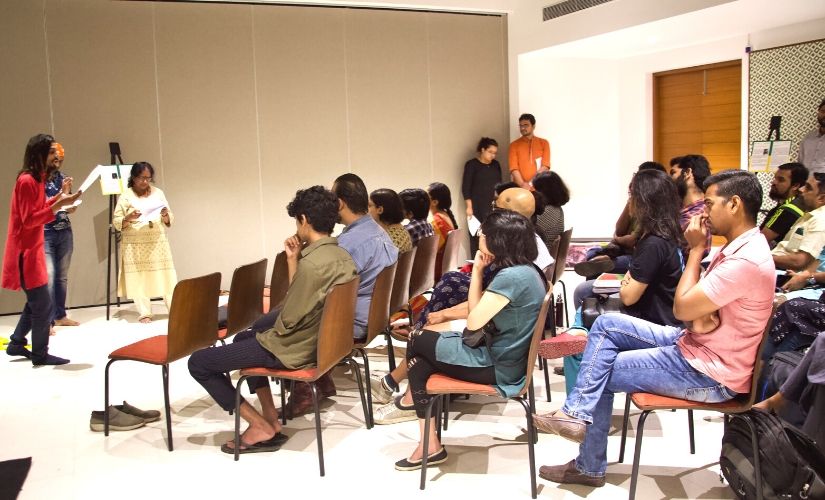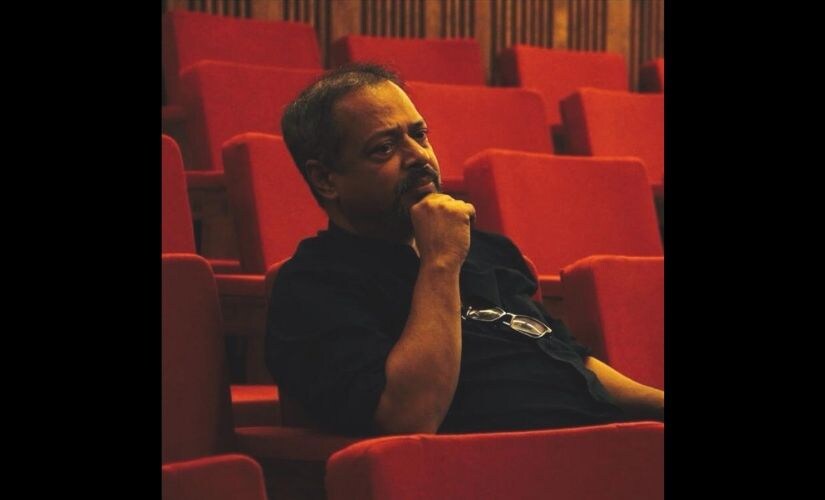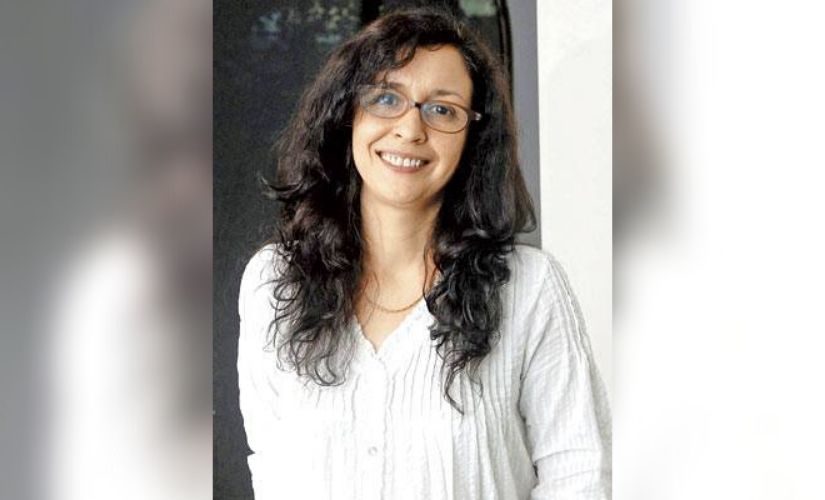Shatarupa Bhattacharya, a doctorate in development studies, is no stranger to writing. However, she was unsure of how to proceed when she thought of writing a play by adapting a book, despite being involved with theatre for several years. She remembered Bankim Chandra Chattopadhyay’s Debi Chaudhurani being hailed as a pro-women book in her childhood. However, on closer look, she wished to adapt it in a new light and wanted to break from the popular perception of the book, in fact critiquing it. What helped her conceive and create a play that looks at these issues, was her participation in First Draft - Ideas Lab by Indian Ensemble, a well-known theatre company in Bengaluru. Over a period of five months, starting from May, along with other participants she attended lectures, discussions and readings to develop the idea from scratch. The rigour and space both played an important role in her finally being ready with the first draft, which she read out at the Bangalore International Centre few days ago. Three others also read their work, developed during this course, before an audience that comprised theatre lovers and practitioners. Chanakya Vyas and Vivek Madan, who conceived and started this lab last year, are hopeful that the lab will not only help those who wish to write for theatre, but also help participants in finding actors, directors, producers, and eventually see the play on stage. [caption id=“attachment_7657611” align=“alignnone” width=“825”]
 At the First Draft - Ideas Lab by Indian Ensemble in Bengaluru. Image courtesy: mythilip@yellowlites2019[/caption] Vyas says their effort was to provide space and mentoring for writers to develop their ideas. “Often what happens is a playwright writes his or her play and only when it reaches rehearsals that they see what works and what doesn’t, because until that point, there is almost no interaction, except for a few readings at the most. That’s a lot of energy and expenses at stake. So, we really wanted to help to develop an idea and put in effort for it to work for the stage. Applicants can come with any idea. We ask them why they want theatre as their medium of expression. We also want the idea to be not fully-developed because then you don’t need this lab,” says Vyas. Lectures by legal experts and historians, besides talks by established theatre exponents, were conducted on subjects like direction, production and other writing aspects. Of the 25 odd applications, they selected four participants wanting to write in Kannada, Gujarati, Bengali and English. The programme does not charge the participants, nor does it provide any stipend. Bhattacharya says, “One of the most important questions that the First Draft - Ideas Lab posed is why are we choosing to develop our idea into a play and not any other medium? It was a pertinent question, especially for a person like me who has never written a play before. The lab taught me to use my research skills not only in developing the idea holistically, but also in developing important elements in it like characters, dialogue, time, premise and story etc.” Several writers’ residencies cater to and are conducive to other forms of writing, such as fiction, non-fiction, poetry and so on. There are several workshops for acting as well. However, writing and directing for theatre requires different skill sets and a different kind of grooming, mentoring or guidance. Established practitioners vouch for the significance of such playwrights’ labs and similar efforts. And while some, such as Writers’ Bloc by Rage Theatre Productions in Mumbai, has been doing this for several years, the need for more is expressed by many.
![2PlaywrightLabs825]()
Traditionally, say in Marathi theatre – primarily based in Pune and Mumbai — a robust practice of one-act play competitions has created an avenue for writers, directors, actors and everyone associated, who often get noticed and then mentored informally. Or groups such as Awishkar, held together by the likes of Arun Kakde — a veteran thespian who recently passed away — who encourage and produce new writing. Venues such as Sudarshan Rangamanch in Pune and an emerging space, G5A in Mumbai, are both crucial to experimenting with scripts, where readings can be hosted and owners are supportive of experiments. Besides these, establishments like Prithvi Theatre and Junoon have also been acknowledged and respected for organic grooming and mentoring. Festivals such as Thespo by QTP have also been encouraging youngsters to participate in writing, directing, staging, and by virtue of that mentoring, a whole lot of theatre practitioners have come to the fore. QTP’s Vivek Rao is also on the panel for First Draft, where he guides participants on production of plays — a crucial but less-talked about aspect. However, for a young, possibly debutante writer, a more organised and assuring ecosystem provides much help. [caption id=“attachment_6789251” align=“alignnone” width=“825”]
 Sunil Shanbag. Facebook/sunil.shanbag[/caption] One of the mentors at this playwrights’ lab is thespian Sunil Shanbag, who himself has conducted a similar programme, though shorter in duration, for mentoring writer-directors. He firmly believes in the concept of such labs. “Writing is a very lonely process, and often writers don’t get to discuss or share their work in progress with anyone. Access to workshops, discussions and actors reading out the script, helps. This programme has a basic requirement of rigour — be it attending classes or working on your draft — which is good for writers.” Dedicated time for writing and deadlines and reviews of work-in-progress are some of the characteristics of these programmes that emphasise on discipline as much as creativity. A much older and well-known programme is Writers’ Bloc by Mumbai’s Rage Productions with Royal Court, London. Shernaz Patel, one of the founders at Rage, has seen several success stories come out of their programme, which has been running since 2002. “In any art form, there is that much skill and craft which you combine with your creativity and imagination. Any programme should help in giving that skill and craft. Writing is such an isolating process, so to have a trusting group, where you can share your work, is helpful. When actors come in these workshops, it gets better. The questions that they pose help in scripting. If an actor says ‘what is my motivation to say this line’, then that’s a red flag. Over the years, writers have done well after participating in Writers’ Bloc.” She believes that application of structural ways to improve an idea, and interaction with highly skilled teachers from the UK who are internationally exposed to theatre, have long term impact. Several writers such as late Chetan Datar, Irawati Karnik, and Purva Naresh, have participated and written prolifically in the later years. Annie Zaidi, writer, poet, and journalist, had her first play, Jaal, staged after she partook in the Writers’ Bloc course in 2012. [caption id=“attachment_7657721” align=“alignnone” width=“825”]
 Shernaz Patel. Image via Facebook.[/caption] “While growing up I had read a lot of plays, among other literature, but writing for the stage is different,” says Zaidi, who won the Hindu Playwright Award in 2018, and the prestigious Nine Dots Prize in 2019, to write a book. “The programme has a structure, so if your idea fits that, it definitely helps. For me, it was good because there are so many elements to think of while writing a play. A writer has to visualise the scene, how the dialogue sounds and so on. Of course, how it is directed and how the actors perform will have the final impact, but it is good to think from the point of view of performance while writing.” Apart from rigour and dedication to theatre, these programmes also require a fair amount of letting go on the part of participants, in order to make the most of it. “It was really like a lab, an experiment,” says Abhimanyu Acharya, who has written a play on the Patidar agitation during the course of First Draft. “It is a good idea to have a collective effort for the first time. You need to train for writing, and in this you are open for changes, modifications and truly experimenting.” “It is very important to have a flexible mind while engaging in creative endeavours, as ideas, when developed, may change from what they were previously. There is no right or wrong. The important point is to make certain dramatic choices, that are for the betterment of the idea, into a play,” says Bhattacharya. It is not that everyone succeeds and has guaranteed professional success. There are practitioners and participants, who feel such programmes do not help their style or their ideas, midway or entirely. “We had one participant who mid-way felt that what she was working on would not fructify into a play and she dropped out. For me, even that is a good thing because even the realisation what works and what doesn’t is extremely important,” says Vyas.
![3PlaywrightLabs825]()
Although the significance of such programmes is established, it is not that easy to conceive and execute long term programmes because of financial and logistical challenges. “The real solution is staring us in the face, and it requires deliberate coalitions that realise all these ideas and give young playwrights with potential, a concrete journey, a developmental journey that gets them to a place of being able to output a great play that can get seen,” says Jehan Manekshaw, Founder and Head at the Drama School Mumbai. He says conventional volunteer-based practices and modern methods can co-exist and even come together to create such opportunities for potential writers. While the First Draft programme is officially over, and organisers are in fact preparing for the next round in 2020, the four participants are now hoping to stage their respective plays as they go about managing other commitments. If past records are anything to go by, then not only are the plays going to be staged, but more writing is just round the corner too.


)
)
)
)
)
)
)
)
)



